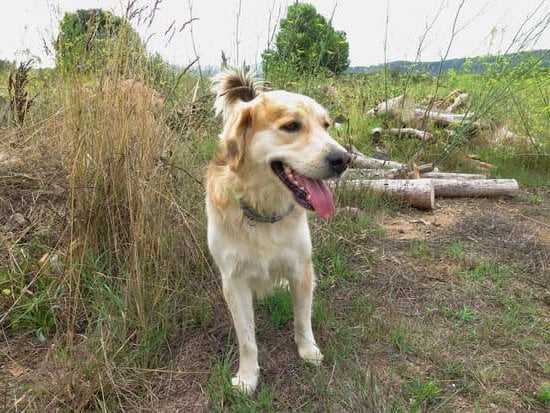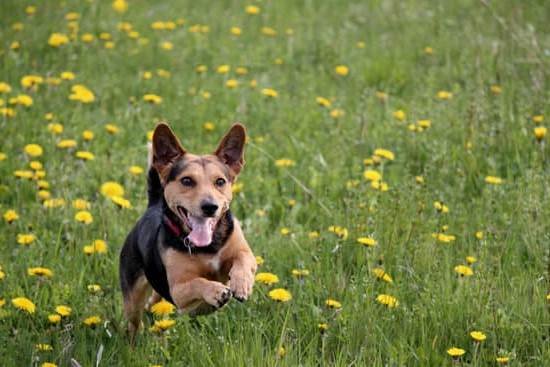There are a variety of reasons why someone might want to train their dog to walk on a leash. Maybe they want to take their dog for a walk in their neighborhood, or maybe they want to take their dog to the park or on a hike. No matter what the reason is, leash training is an important part of owning a dog.
Most people think of leash training as teaching a dog to walk next to them on a leash, but there’s more to it than that. Leash training also includes teaching a dog to sit, stay, come, and heel. It’s important to be able to train your dog to do these things because it will make taking them for a walk much easier and safer.
There are a few things that you’ll need to do before you start leash training your dog. The first is to make sure that your dog is properly vaccinated and that they’re up-to-date on their shots. The second is to make sure that your dog is spayed or neutered. The third is to make sure that your dog is properly trained. If your dog isn’t potty trained or if they’re not familiar with basic obedience commands, you’ll need to work on that before you start leash training.
The best way to train your dog to walk on a leash is to start out slowly. Begin by putting your dog on a leash in a safe, quiet area, like your backyard. If your dog is resistant to walking on the leash, start by rewarding them every time they take a step in the right direction. As your dog gets better at walking on the leash, start taking them on walks in more populated areas.
It’s important to always keep your dog on a leash when you’re walking them. Not only is it the law in most places, but it’s also important for your dog’s safety. A leash will help keep your dog safe from cars, other dogs, and other hazards.
If you’re having trouble training your dog to walk on a leash, there are a few things that you can do to help. One is to make sure that you’re using the right type of leash. A leash that’s too heavy or that’s made of a stiff material can be difficult for a dog to pull against. A light, flexible leash is a better option.
You can also help your dog to walk on a leash by using a training collar. A training collar is a collar that has a small amount of tension on it, which will help to keep your dog from pulling on the leash.
If you’re still having trouble training your dog to walk on a leash, you may want to consider hiring a professional dog trainer. A professional dog trainer can help you to overcome any challenges that you’re having with leash training and can help you to create a training program that’s tailored specifically to your dog’s needs.
20 Foot Dog Training Leash
When it comes to finding the perfect dog training leash, you want to make sure that you find one that is long enough to give your dog plenty of space to move around, but is also short enough so that you can maintain control over them. This 20 foot dog training leash is the perfect option for those who are looking for a leash that is both long and short. The 20 foot length gives your dog plenty of space to move around, while the 1 foot length ensures that you maintain control over them.
Amazon Dog Training Leash
The Amazon Dog Training Leash is an innovative product designed to make dog training easier and more effective. The leash is made of sturdy, durable materials and features a special handle that allows the trainer to apply pressure and corrections as needed. The leash also includes a built-in halt button that makes it easy to stop the dog when needed.
The Amazon Dog Training Leash is the perfect tool for anyone who wants to train their dog effectively and easily. The leash is designed to provide the perfect amount of pressure and correction, and the halt button makes it easy to stop the dog when needed. The leash is also made of sturdy, durable materials that will last for years.
How To Train Dog Not To Pull On Leash
Dogs pulling on leashes is a common problem, but it can be easily corrected with proper training. The first step is to make sure your dog is wearing a collar and leash that fit properly. The collar should be tight enough so that it cannot be slipped over the dog’s head, but not so tight that it chokes the dog. The leash should be long enough so that the dog can walk comfortably, but not so long that it can wander off.
The next step is to train your dog to walk on a loose leash. This can be done by rewarding the dog for walking close to you and gently tugging on the leash to correct him when he pulls. It may take some time, but eventually your dog will learn to walk calmly on a loose leash.
Best Dog Leash Training
Tips
There is no one-size-fits-all answer to this question, as the best way to train your dog to walk on a leash will vary depending on the individual dog’s personality and temperament. However, there are a few general tips that can help make the process easier for both you and your pet.
First, it is important to start leash training as early as possible, ideally when your dog is still a puppy. This will help them get used to the idea of wearing a leash and being controlled by it.
When you are first starting to train your dog to walk on a leash, start by attaching the leash to their collar and taking them for short walks in a quiet, safe area. Try to keep the walks as positive and relaxed as possible, rewarding your dog with treats and praise when they walk nicely by your side.
If your dog starts to pull on the leash, do not jerk or pull back on the leash yourself, as this will only cause them to become more agitated and likely to pull even harder. Instead, gently but firmly pull the leash towards you until your dog stops pulling, then praise them and give them a treat.
It is also important to be consistent with your leash training, rewarding your dog for good behavior and gently correcting them when they disobey. With patience and persistence, you and your dog can learn to enjoy walks together safely and calmly.

Welcome to the blog! I am a professional dog trainer and have been working with dogs for many years. In this blog, I will be discussing various topics related to dog training, including tips, tricks, and advice. I hope you find this information helpful and informative. Thanks for reading!





